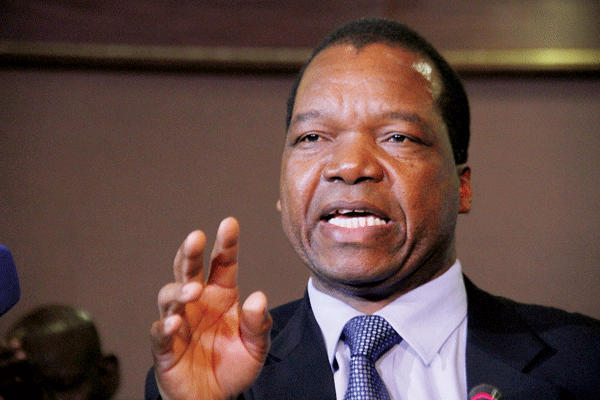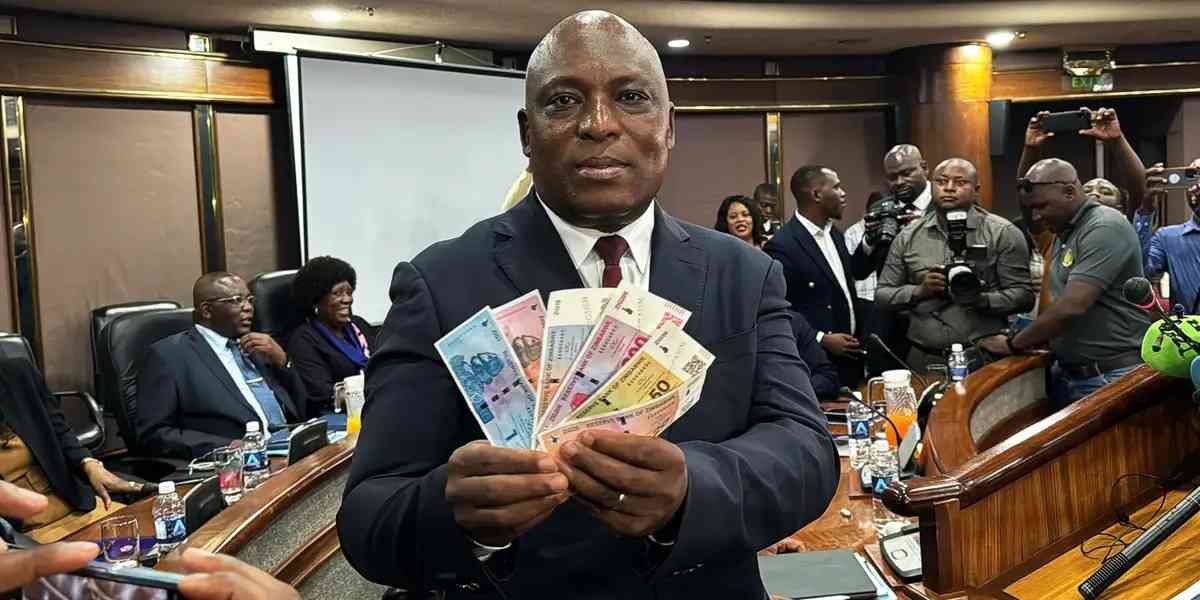
Reserve Bank of Zimbabwe governor, John Mangudya will soon present his Monetary Policy Statement (MPS) in terms of section 46 of the Reserve Bank of Zimbabwe Act [Chapter 22:15].
Omen Muza

Buffeted by an unresolved external debt situation, subpar export performance and worsening foreign currency shortages, Mangudya will have few options for meaningful interventions to improve productivity, which has become his mantra.
In order to grow the real sector of the economy, political will to make drastic changes is required — something government has so far clearly failed to muster. It will, therefore, most likely be a reactive MPS, one focused on solving problems that have already been created, though Mangudya prefers it to be a proactive one that tries to prevent future problems from occurring. Worse, it will be an MPS that tinkers with symptoms since the government does not want to swallow the bitter medicine. Undeniably, however, given the widespread pessimism about economic prospects, it will also need to be a confidence-boosting MPS.
Though the economic background is generally depressing, Mangudya can still be buoyed by some recent successes. We are likely to hear that the 5% export incentive scheme has helped some companies to resume or increase their exports (although inwardly, he will be more satisfied about the fact that he has successfully introduced an alternative local currency through the export incentive Trojan Horse); that under his watch, adoption of plastic money has soared and that the liquidity situation will soon improve due to the seasonal impact of the forthcoming tobacco marketing season, which the central bank is actively supporting through the export incentive scheme.
While these successes are most welcome and must be lauded, celebrations must be cut short to focus on some key issues which demand immediate attention.
Cash shortages: Long term solution
The RBZ has insisted that bond notes are not a response to the cash shortages and can, therefore, not be expected to end cash shortages. They are only an export incentive, we have heard repeatedly, although the reality is that they have become a medium of exchange.
- Chamisa under fire over US$120K donation
- Mavhunga puts DeMbare into Chibuku quarterfinals
- Pension funds bet on Cabora Bassa oilfields
- Councils defy govt fire tender directive
Keep Reading
The MPS will, therefore, have to tell us what the monetary authorities view as the long-term solution to the cash squeeze.
Bond notes: Confidence building measures
The independent committee that the governor promised would oversee the issuance of bond notes is still not in place almost two months after the introduction of the notes and with over a third (36%) of the targeted value of bond notes already in issue. Accordingly, the MPS is expected to outline progress made in setting up this important committee.
The $200 million Afreximbank facility that purportedly backs the issuance of bond notes and is supposed to give the public a measure of confidence has remained shrouded in mystery and the MPS would do a world of good by taking the veil of secrecy off this facility, which has sometimes been described as “shadowy” and “fictitious,” amongst other uncomplimentary epithets.
Foreign currency shortages: Keeping parallel market at bay
Lately, industrialists have been grumbling about banks not sticking to the import priority list for foreign currency allocation. Depleted nostro accounts have resulted in banks experiencing serious foreign payment backlogs, which date as far back as six months at some institutions. Seeing no end in sight to the logjam, companies are already acting in ways that suggest that they expect the situation to get worse.
They are already exploring alternative means of securing foreign currency in order to meet critical requirements such as their external debt obligations.
A case in point is Econet Wireless’ $130 million rights issue through which it seeks to pay off all term loans, including some that are not yet due for payment. In the face of such pressure, how much longer can the system hold on before market players turn to the informal currency markets for survival? The MPS is expected to be alive to this reality and accordingly outline measures to assure the market that the formal banking system will be able to meet demand for foreign currency, and that the parallel market will be kept at bay. Improving productivity and export performance are long-term imperatives and cannot deliver overnight solutions — but how will the country survive in the short term? Perhaps, more nostro support facilities?
Stimulating lending
Banks have become more risk averse due to a looming resurgence in default risk caused by a combination of worsening macroeconomic conditions and the impact of the introduction of bond notes.
The capping of interest rates puts banks in the frame of mind that they can’t fully price prevailing levels of credit risk, which could see them choosing to invest in Treasury Bills (TBs) for instance rather than increase lending. Small businesses, which now account for the majority of active economic agents, would be the worst affected by this development since they will no longer be able to access capital to grow their businesses.
Needless to say, this will negatively impact on the country’s financial inclusion goals, which the Reserve Bank of Zimbabwe is spearheading through the National Financial Inclusion Strategy. Accordingly, the MPS is expected to outline how the apex bank intends to stimulate lending under the circumstances — it doesn’t have money to lend to banks but at the same time wants to see affordable interest rates in the market.
Financial sector: Rebuilding confidence
As things stand, the transacting public no longer has confidence in the banks’ ability to meet their various needs — cash for withdrawals, foreign currency for external payments and liquidity for their borrowing requirements.
In order to avoid further destabilisation of the sector, which will definitely accelerate disintermediation — the MPS will have to outline measures to improve public confidence and encourage deposits (difficult as it is).
The current situation, whereby, transactional activity is now typified by withdrawals and isolated deposits of hard currency is not sustainable and will have to be addressed unless that’s what the monetary authorities set out to achieve with the introduction of bond notes.
Omen N. Muza edits the MFSB. You can view his LinkedIn profile at zw.linkedin.com/pub/omen-n-muza/30/641/3b8 or initiate contact on [email protected].











